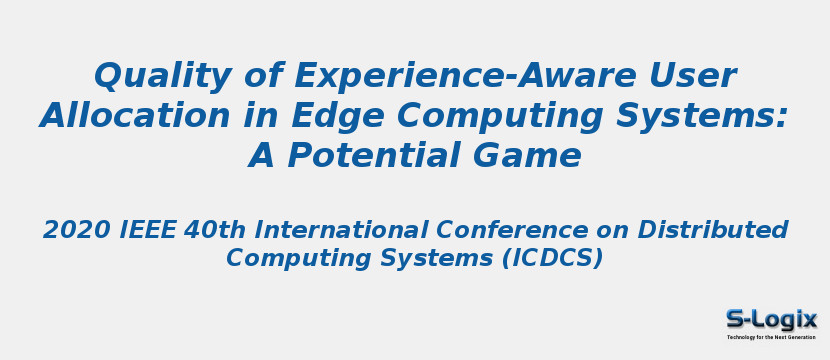Research Area: Edge Computing
As many applications and services are moving towards a more human-centered design, app vendors are taking the quality of experience (QoE) increasingly seriously. End-to-end latency is a key factor that determines the QoE experienced by users, especially for latency-sensitive applications such as online gaming, health care, critical warning systems and so on. Recently, edge computing has emerged as a promising solution to the high latency problem. In an edge computing environment, edge servers are deployed at cellular base stations, offering processing power and low network latency to users within their geographic proximity. In this paper, we tackle the user allocation problem in edge computing from an app vendor-s perspective, where the vendor needs to decide which edge servers to serve which users in a specific area. Also, the vendor must consider the various levels of quality of service (QoS) for its users. Each QoS level results in a different QoE level; thus, the app vendor needs to decide the QoS level for each user so that the overall user experience is maximized. To tackle the NP-hardness of this problem, we formulate it as a potential game then propose QoEGame, an effective and efficient game-theoretic approach that admits a Nash equilibrium as a solution to the user allocation problem. Being a distributed algorithm, QoEGame is able to fully utilize the distributed nature of edge computing. Finally, we theoretically and empirically evaluate the performance of QoEGame, which is illustrated to be significantly better than the state of the art and other baseline approaches.
Keywords:
Edge computing
User allocation
Quality of Experience
Quality of Service
Game theory
Author(s) Name: Phu Lai; Qiang He; Guangming Cui; Feifei Chen; Mohamed Abdelrazek; John Grundy; John Hosking; Yun Yang
Journal name:
Conferrence name: 2020 IEEE 40th International Conference on Distributed Computing Systems (ICDCS)
Publisher name: IEEE
DOI: 10.1109/ICDCS47774.2020.00036
Volume Information:
